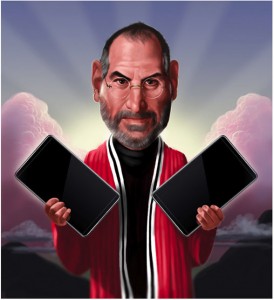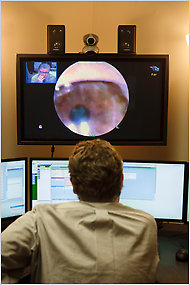 With technology's rapid advancements, keeping up with the digital world's leadership and vision of the future is always interesting and educational. Since debuting in 2003, The Wall Street Journal’s D: All Things Digital conference has delivered straight-up conversations with the most influential figures in media and technology, you'll see the list below and it includes the unbiquitous Steve Jobs and others. I always find the content interesting and worthwhile.
With technology's rapid advancements, keeping up with the digital world's leadership and vision of the future is always interesting and educational. Since debuting in 2003, The Wall Street Journal’s D: All Things Digital conference has delivered straight-up conversations with the most influential figures in media and technology, you'll see the list below and it includes the unbiquitous Steve Jobs and others. I always find the content interesting and worthwhile.
The 2010 D8, the eighth annual All Things Digital Conference, ran from June 1-3. Creators and executive producers Walt Mossberg and Kara Swisher put the industry’s top players to the test.
Visit AllThingsD.com’s D8 pages for blog coverage, video and photos. The speakers for D8 are outlined with links below. Read and watch !
Tim Armstrong | Chairman and CEO of AOL
Steve Ballmer | CEO of Microsoft
Lloyd Braun | Co-owner of BermanBraun
Steve Burke | COO of Comcast
James Cameron | Director, Producer, Writer
Steve Case | Chairman and CEO of Revolution
Peter Chou | CEO of HTC
John Donahoe | President and CEO of eBay
Julius Genachowski | Chairman of the FCC
Paul Jacobs | CEO of Qualcomm
Steve Jobs | CEO of Apple
Jeffrey Katzenberg | CEO of Dreamworks Animation SKG
Steven Levitan | Co-Creator and Executive Producer of “Modern Family”
Alan Mulally | CEO of Ford
Ray Ozzie | Chief Software Architect of Microsoft
Richard Rosenblatt | Co-Founder, Chairman and CEO of Demand Media
Vivian Schiller | President and CEO of NPR
Paul Steiger | Editor-in-Chief, President and Chief Executive of ProPublica
Mark Zuckerberg | Founder and CEO of Facebook













